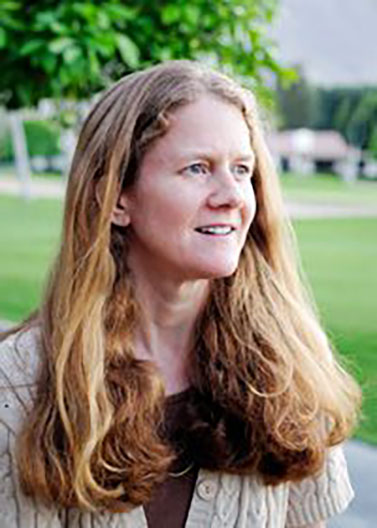

 Skip to navigation
Skip to navigation
Site Primary Navigation:
- About SDSC
- Services
- Support
- Research & Development
- Education & Training
- News & Events
Search The Site:

Published December 20, 2016

KC Claffy, principal investigator and founding director of the Center for Applied Internet Data Analysis (CAIDA) at the San Diego Supercomputer Center (SDSC), has been named to the second annual “10 Women in Networking/Communications That You Should Know” list.
Now in its second year, the list is compiled and coordinated by N2 Women (Networking/Networking Women), a discipline-specific community for researchers in the communications and networking research fields. The organization’s main goal is to foster connections among under-represented women in computer networking and related research fields. The full list of this year’s award recipients can be found here.
Nominations are solicited both from the N2 Women community as well as through several mailing lists related to networking and communications. More than 150 people from around the world submitted nominations, resulting in over 140 distinct names of accomplished women in the field, according to the organization.
A committee of five N2 Women board members selected this year’s 10 honorees. “Many people from around the world submitted one or more nominations for this list, and it was very difficult to choose only 10 amazing women,” said Oana Iova, a post-doc in the D3S research group with the Department of Information Engineering and Computer Science (DISI) at the
University of Trento, Italy, and the awards co-chair who led the nomination and selection processes this year. “We focused on women who have had a major impact in networking and/or communications. We also wanted a list that reflected presented our diversity, and specifically the diversity in the area of networking/communications.”
“I am honored to join such a distinguished group on this year's N2 Women's list,” said Claffy, who founded CAIDA in 1997 as a collaboration among commercial, government, and academic research sectors to promote greater cooperation in the engineering and maintenance of a robust, scalable global internet infrastructure. “I encourage other women working in networking and communications to attend or help organize an N2 Women event at their next ACM, IEEE, or other relevant conference or workshop.”
Claffy also is an adjunct professor of Computer Science and Engineering (CSE) at UC San Diego, and SDSC is an Organized Research Unit of the university. Today, CAIDA’s research interests include internet cartography, or detailed analyses of the changing nature of the internet's topology, routing and traffic dynamics. CAIDA also investigates the implications of these changes on network science, architecture, infrastructure security and stability, and public policy.
Earlier this year CAIDA was awarded a $1.4 million grant from the U.S. Department of Homeland Security to demonstrate and illuminate structural and dynamic aspects of the internet infrastructure relevant to cybersecurity vulnerabilities, including macroscopic stability and resiliency analyses, grey markets for IPv4 addressing resources, and on-demand router-level topology inference.
Claffy received the 2015 IEEE (Institute of Electrical and Electronics Engineers) Internet Award for her “seminal contributions to the field of internet measurement, including security and network data analysis, and for distinguished leadership in and service to the internet community by providing open-access data and tools,” according to a notice published by the institute.
About N2 Women
The goal of Networking Networking Women (N2 Women) is to foster connections among the under-represented women in computer networking and related research fields. N2 Women is an ACM SIGMOBILE program that is supported by the IEEE Communications Society, Microsoft Research, HP Labs, Google, and the IEEE Computer Society (CS) Technical Committee on Computer Communications (TCCC).
About SDSC
As an Organized Research Unit of UC San Diego, SDSC is considered a leader in data-intensive computing and cyberinfrastructure, providing resources, services, and expertise to the national research community, including industry and academia. Cyberinfrastructure refers to an accessible, integrated network of computer-based resources and expertise, focused on accelerating scientific inquiry and discovery. SDSC supports hundreds of multidisciplinary programs spanning a wide variety of domains, from earth sciences and biology to astrophysics, bioinformatics, and health IT. SDSC’s Comet joins the Center’s data-intensive Gordon cluster, and are both part of the National Science Foundation’s XSEDE (Extreme Science and Engineering Discovery Environment) program.
Share